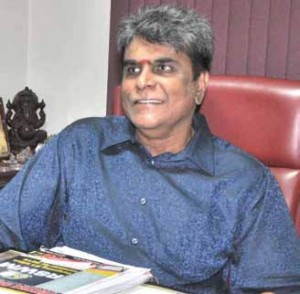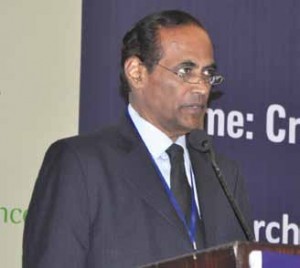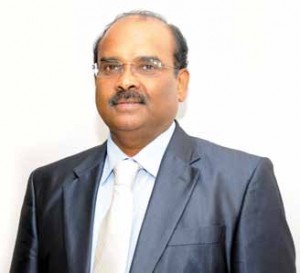 The duty reduction on equipment for modernising mills and lower incidence on branded garments as announced in the Central Budget for 2012-13 presented by the Finance Minister, Mr. Pranab Mukherjee, has left the textile sector happy. The duty concessions offered for mills opting to modernise and a financial package of Rs. 3,884 crores for waiver of loans for handloom weavers and their cooperative societies are really welcome features of the Budget.
The duty reduction on equipment for modernising mills and lower incidence on branded garments as announced in the Central Budget for 2012-13 presented by the Finance Minister, Mr. Pranab Mukherjee, has left the textile sector happy. The duty concessions offered for mills opting to modernise and a financial package of Rs. 3,884 crores for waiver of loans for handloom weavers and their cooperative societies are really welcome features of the Budget.
Textile mills planning modernisation will benefit from customs duty exemption (five per cent earlier) on automatic shuttleless looms. Weavers will benefit from this in a big way, as production in India of advanced shuttle-less looms is very low and, thus, they are forced to import. The import duty on second-hand automatic looms will also come down to 9.33 per cent from the present 14.33 per cent.
“Duty-free imports will definitely make import of advanced shuttle-less looms cheaper,” said Mr. Rahul Mehta, President, Clothing Manufacturers Association of India.
Branded garment makers also have a reason to celebrate. While the excise duty on branded garments has been increased from 10 per cent to 12 per cent, the abatement of 55 per cent from the maximum retail price (MRP) has also been raised to 70 per cent. This would bring down the incidence of duty as a percentage of MRP from 4.5 per cent to 3.6 per cent.
“The Budget is pragmatic, growth-oriented and is in the right direction’’, said Mr. Amit Ruparelia, Chairman, Cotton Textiles Export Promotion Council (TEXPROCIL). “The exemption of customs duty on automatic shuttleless looms will certainly give a boost to the modernization efforts of the textile industry in the weaving sector and will help India emerge as a vibrant hub for fabric production in South Asia”.
Said Mr. Sanjay Lalbhai, Arvind Chairman and Managing Director: “Reduction in basic customs duty on new automatic shuttleless looms and increase in the abatement rate for branded garments will have positive impact on the textile industry. However, the industry will have higher input tax burden on account of increase in excise duty and service tax by two per cent. The sector, which is currently under an optional excise duty regime, will suffer the incidence of the incremental increase of excise duty and service tax on goods for domestic sale. However, the same would be neutral for exports.”
Powerloom mega cluster
The Government also plans to set up a powerloom mega cluster in Ichalkaranji, Maharashtra, with a budget allocation of Rs. 70 crores. Ichalkaranji is the only place in India which produces yarn of all counts.
The textile industry in general was upbeat on the measures announced in the Budget. Mr. Debashis Poddar, CEO of the Textile Division of Bombay Dyeing, said that there’d be a five per cent saving on modernisation expenditure, and it would also encourage expansion.
 The powerloom segment, too, has no complaints. Mr. Bharat Chhajer, Chairman of the Powerloom Development & Export Promotion Council (PDEXCIL), said that for the first time, special attention had been given to the sector and “our demands have more or less been met”.
The powerloom segment, too, has no complaints. Mr. Bharat Chhajer, Chairman of the Powerloom Development & Export Promotion Council (PDEXCIL), said that for the first time, special attention had been given to the sector and “our demands have more or less been met”.
Pointing out that the textiles segment was the largest employment provider after agriculture, the Textiles Minister, Mr. Anand Sharma, said all these steps will help in technology upgradation, value addition and job generation in the sector.
Mr. A. Sakthivel, President, Tirupur Exporters’ Association (TEA), commented that the sector welcomes all these measures but is concerned about a small cut in excise duty payment on branded garments. Excise duty would now be charged at 30 per cent of the retail sale price against the existing 45 per cent, though the industry had requested for full excise duty exemptions on branded garments.
Mr. Sakthivel also said that since the service tax has been increased to 12 per cent (from 10 per cent) and more services have been included in the tax net, the Finance Ministry should increase the service tax refund given to knitwear exporting units from the existing 0.15 per cent to 1.5 per cent of the total f.o.b. value of exports. This was required to offset the increase in service tax rate.
The full exemption from basic duty is being accorded to automatic silk reeling and processing machinery as well as its parts.
Mr. Sakthivel has welcomed introduction of GST from August and allocation of Rs. 1,000 crores under the National Skill Development Fund in 2012-13. He has also hailed the setting up of the Rs. 5,000-crore India Opportunities Venture Fund with SIDBI for micro small and medium enterprises (MSMEs).
He has however expressed concern over the reduction made in the payment of excise duty on branded garments, where the duty charged would be at 30 per cent of the retail sale price against the existing 45 per cent. The industry had in fact sought full excise duty exemptions on branded garments.
 The Budget proposals evoked mixed response from the textile industry in Coimbatore. Though it has not dealt any harm to the industry, it failed to consider the genuine demands with regard to man-made fibres, said Mr. S. Dinakaran, Chairman of the South India Mills Association (SIMA).
The Budget proposals evoked mixed response from the textile industry in Coimbatore. Though it has not dealt any harm to the industry, it failed to consider the genuine demands with regard to man-made fibres, said Mr. S. Dinakaran, Chairman of the South India Mills Association (SIMA).
 The industry was in fact demanding abolition of five per cent customs duty and four per cent special additional duty on par with cotton textile for the man-made fibre textile. Criticising the increase of service tax from 10 to 12 per cent and bringing most of the services under the tax net, he said it could have been avoided since GST would become operational in August.
The industry was in fact demanding abolition of five per cent customs duty and four per cent special additional duty on par with cotton textile for the man-made fibre textile. Criticising the increase of service tax from 10 to 12 per cent and bringing most of the services under the tax net, he said it could have been avoided since GST would become operational in August.
Mr. S.V. Arumugam, Chairman, Confederation of Indian Textile Industry (CITI), observed that, while CITI had requested for removal or reduction of excise duty for man-made fibres, the duty has gone up from 10 per cent to 12 per cent. Though the hike is a part of increase in the standard rate itself, it would make man-made fibres of India less competitive compared to the competing countries.
The Coimbatore District Small Industries Association President, Mr. M. Kandhasamy, has described the Budget a total disappointment. However, he has welcomed the setting up of the Rs. 5,000-crore venture fund for the MSME sector and the Rs. 1,000-crore National Skill Development Fund.